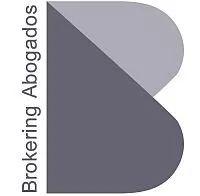Definition
A pensioner or renter's visa is a temporary residency visa that applies to applicants that are retired and have a retirement pension or with the means to support themselves in Chile via a periodic income that they receive from the ownership of property and/or lease contracts in Chile or abroad or from any other legal means, such as stock ownership, interest income, bond investments, among others.
The amount of income required is not established by law, and is finally determined by the competent authorities in Chile. This amount is determined by different factors, such as the place where the applicant intends to live in or if he or she brings family to Chile as well. The approval is based on convincing the authorities that the applicant can support him or herself and his family for at least the duration of the visa, which is one year.
Considering the cost of life, the amount needed is at least USD$1.000 per month per person in the household, depending of course of the place where the applicant intends to live, as this cost varies among different cities and communes. This amount can vary with the exchange rates of the currency.
There are no restrictions with this visa. The applicant that is granted this type of visa can do any legal activity in Chile within the term of the visa.
Ways to apply
This can be applied either via a competent consulate of the country of residency of the applicant or directly in Chile, via a standard form that must be filled, signed and mailed to the Department of Immigration. It is recommended to apply in Chile, as the time required for approval is much shorter, and the rejection rate is lower.
The following general documentation is necessary:
- Copy of the complete passport, including the identification pages, the number and dates of issuance and expiry, and the page with the entry stamp to the country.
- Copy of the Tourism Card
- A recent photograph of the applicant, 3×2 cm., in color, with full name and passport number
The applicant must also bring the following documentation, specific to the type of visa:
- Regarding pensioners
- Copy of the last 3 monthly liquidations of pensions, legalized before a Notary Public or
- Copy of the Consul's Certificate of the country of origin of the applicant, which certifies the income that the applicant receives from his retirement fund, in national currency or its equivalent in US Dollars, legalized before a Notary Public.
- Regarding renters
- Documents that prove that the applicant has a regular recurring income that is enough to support the applicant and his or her dependent family members. This can be certificates of ownership of real estate, rent contracts either in Chile or abroad, and other kinds of documents that prove a regular recurring income. This documents must always be legalized before a Notary Public, and any document drafted abroad must be legalized on the Chilean Consulate of the country of origin and translated and legalized by the Ministry of Foreign Affairs.
- Regarding dependents
- Husband or Wife: Original Marriage Certificate or a copy authorized before a Notary Public
- Children: Original Birth Certificate, that includes the name of the parents, or a copy authorized before Notary Public
- Parents of the applicant: Original Birth Certificate, that includes the name of the parents, or a copy authorized before Notary Public
- Sworn Statement of Expenses in which the applicant declares that he or she assumes the living costs of his or her dependents in Chile, signed before Notary Public.
- Proof of an income source of the main applicant in Chile (this can be done via a sworn statement of income and the documents that prove it, such as a currency exchange slip, photocopies of credit cards and account statements and/or a certificate of the company for which the main applicant works for that includes their salary or the latest pay slips, or by any other means, such as bank deposit statements, rents from abroad, ownership of shares or goods that produce income)
The content of this article is intended to provide a general guide to the subject matter. Specialist advice should be sought about your specific circumstances.

